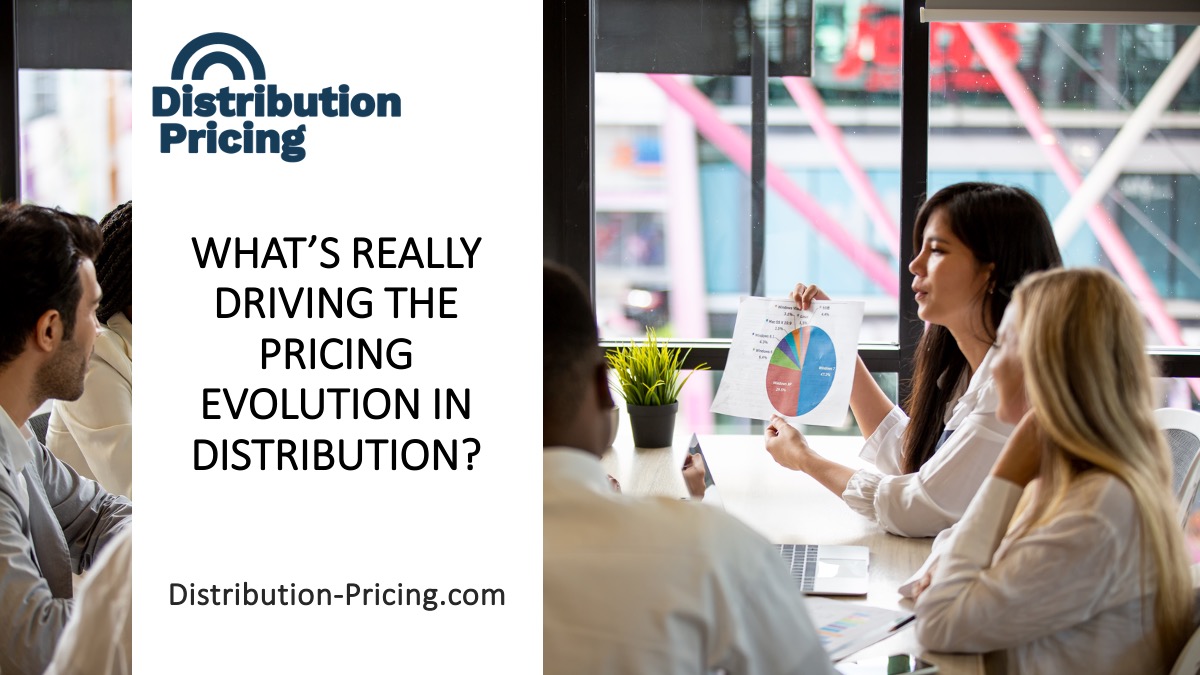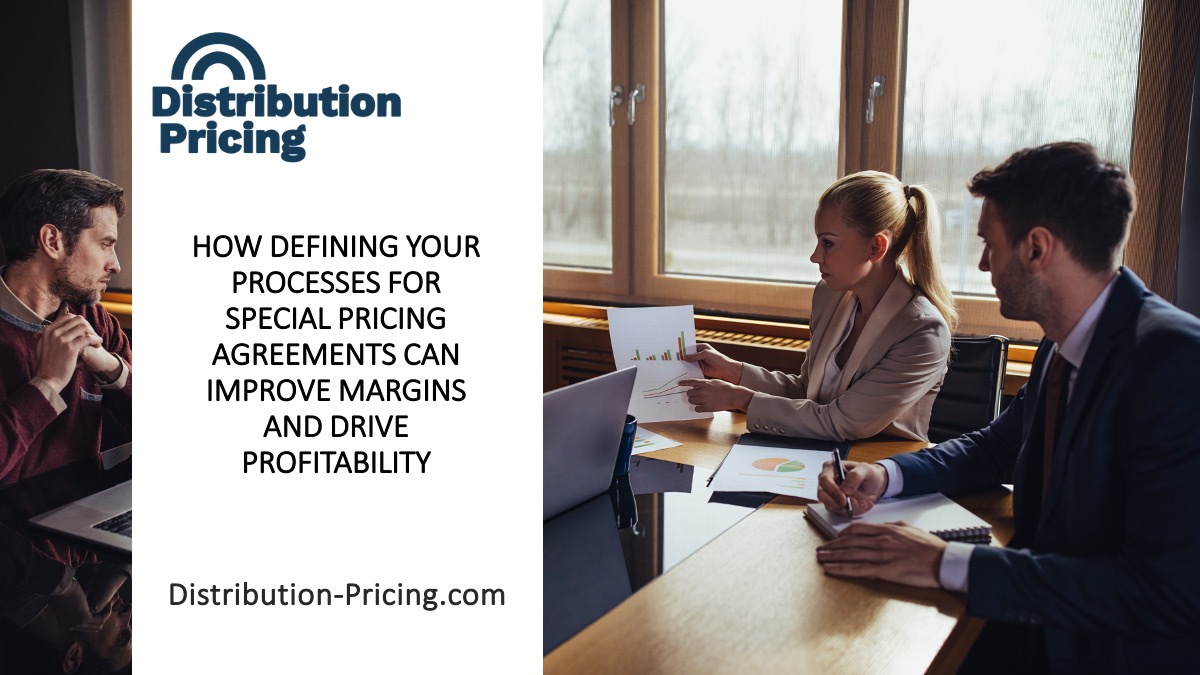Pricing is the battleground where wholesale distributors compete for profitability and market share. More distributors…

Who Is in Charge of Pricing in Your Distribution Company?
Who is in charge of pricing? Pricing is important to distribution companies because it determines profitability. If a company sets its prices too high, it will not be as profitable as if it set its prices lower. In addition, distribution pricing influences customer satisfaction. If a company charges too much for its products, customers may be less satisfied with the purchase. Finally, pricing can influence other aspects of a business. For example, if a company charges too much for its products, it may not be able to sell as many products and may have to reduce its workforce. Or purchasing agents may become frustrated when they see discounts cutting into the hard work, they put into driving profits.
Price points can make or break a business
There are a few reasons why price points can make or break a business. The most important reason is that it greatly affects profitability. If a business sets its prices too high, customers will be unwilling to purchase its products or services, and the business will lose money. On the other hand, if a business sets its prices too low, it may not be able to cover its costs and will eventually go out of business.
Another reason why price points can make or break a business is because it influences customer relationships. If customers feel that a business is too expensive, they will be less likely to do business with that company again. Conversely, if customers feel that a business is offering good value for their money, they are likely to return in the future.
Ultimately, it is essential for businesses to find the right balance between price and profitability so that they can continue to operate successfully.
Reasons why the CEO often oversees pricing
There are a few reasons why the CEO should oversee pricing. The most important reason is that the CEO has a wide view of the entire business and can make decisions that affect all parts of the company. For example, the CEO may decide to raise or lower prices to improve profitability or compete with other businesses.
The CEO may also have a long history with the markets, locations and customers of the business. This knowledge can be invaluable when it comes to setting prices. Additionally, the CEO has the largest motivator to drive overall success and will see pricing through that lens.
Ultimately, it is essential for businesses to find the right balance between price and profitability so that they can continue to operate successfully. The CEO is in the best position to make decisions that will achieve this balance.
Reasons why the CFO often oversees pricing
There are a few reasons why the CFO should oversee pricing. The most important reason is that the CFO is focused on financial well-being, profitability and cash flow. The CFO can make decisions about pricing that will improve profitability and help the company achieve its financial goals.
Another reason why CFO should oversee pricing is because the CFO doesn’t have internal departmental conflicts. For example, sales leaders may conflict with purchasing agents over driving sales vs. profit with pricing. By having the CFO in charge of pricing, these conflicts can be minimized or eliminated altogether.
Reasons why sales leaders often oversees pricing
Sales leaders are the closest to the customers’ buying motivations and needs that influence perception of value. They understand what customers are looking for and what they are willing to pay. This understanding gives sales leaders a unique insight into pricing and can help them set prices that reflect the true value of the product or service.
Sales leaders know more about market competition and how it impacts pricing. To be successful, they must stay ahead of the competition and one way to do that is by being knowledgeable about what other businesses are charging for similar products or services. Sales leaders can use this information to set their own prices in a way that is both fair to the customer and profitable for the business.
Closing rates can be dramatically affected by incorrect pricing so sales leaders are very interested in getting the price right. It’s important to have someone who is passionate about getting the price correct in charge of pricing, and who better than the sales leader? This individual understands all the factors that go into setting a price and knows how important it is to get it right.
Who is in charge of pricing? Everyone.
In the end, who is in charge of pricing? One of the reasons pricing is a complex process is that it can have a significant impact on a company’s bottom line. If prices are too high, customers may go elsewhere, resulting in lower sales and profits. If prices are too low, the company may not be able to cover its costs, leading to losses.
Another reason pricing is complex is that it can be influenced by a variety of factors. For example, what type of product is being priced? How much competition does the product have? What is the economic environment? All these factors need to be considered when setting prices.
Finally, pricing is complex because it involves making trade-offs. A company may need to choose between pricing its products competitively to gain market share or pricing them higher to maximize profits. There is no one right answer – it depends on the specific circumstances and goals of the company.
To make sound decisions about pricing, it’s important for a company to involve all members of its team. This includes people with knowledge about the products, the target market, and the competitive landscape. By working together, companies can develop a well-informed pricing strategy that meets both their short-term and long-term goals.
The right tools and consulting help everyone make the right pricing decisions
The right tools and consulting can help everyone make the right pricing decisions because they provide objective data that can be used to guide pricing discussions. Price optimization can help give you the right guidelines for profitable pricing and establish your ERP price matrix, while pricing analytics can help your team have data-driven discussions about pricing. With the right tools and consulting, everyone involved in pricing decisions can make informed and confident choices that will lead to better profits for your business.



